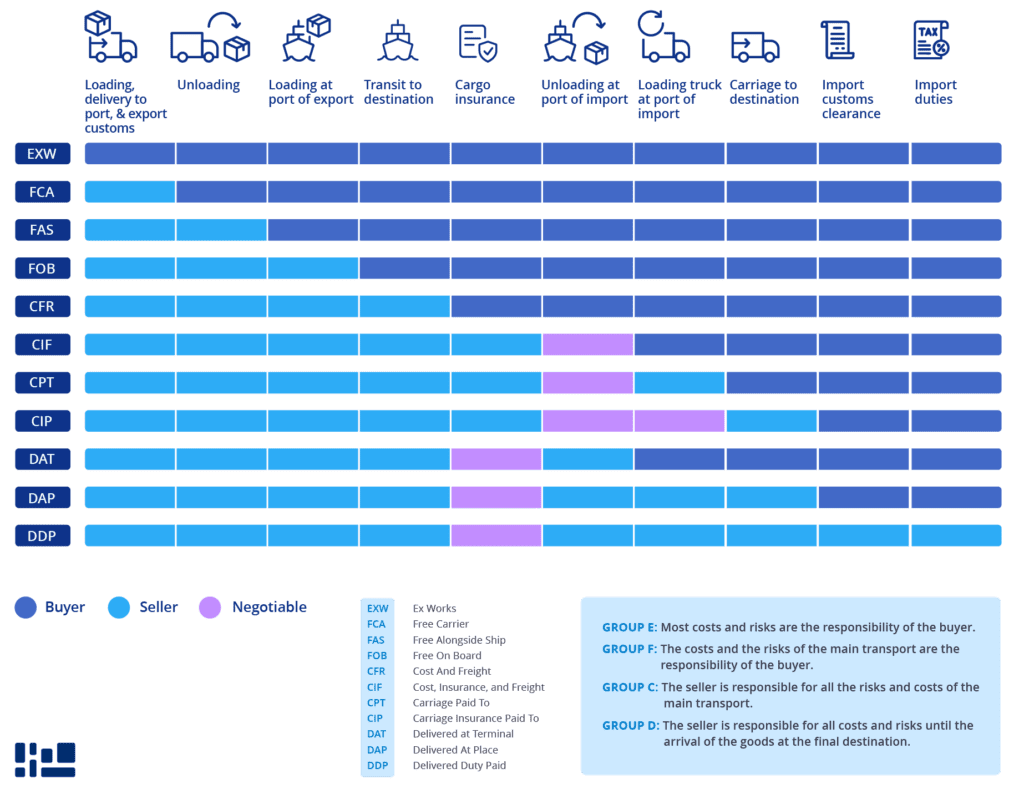Part of the Comprehensive Incoterms Guide
What Does CIP Mean in Shipping?
CIP (Carriage And Insurance Paid To) means that the seller is responsible for delivery, delivery costs, and insurance costs of the goods until they are transferred to the first carrier tasked with transporting the goods. Once this delivery takes place, the buyer takes on all responsibility.
If you’re considering shipping using CIP, make sure to read the details of your contract carefully.
This incoterm is recommended only if you’re using a Letter of Credit.

CIP vs CIF
What’s the difference between CIP and CIF?
The two incoterms are very similar, except that CIP is used for all modes of transport, whereas CIF applies to sea freight only. This also means that for CIF, responsibility transfers at the origin seaport, whereas for CIP it transfers at any agreed-upon location in the origin country.
CIP is also very similar to CPT, except that with CIP, the seller is also responsible for arranging main carriage insurance.
CIP Shipping Tips And Tricks
- Our CPT tips are also helpful for CIP, except for the tip on the buyer arranging insurance – because in CIP, that’s the seller’s job.
- The seller is required only to arrange minimum insurance cover, to the invoice value of the goods. If the buyer does not consider that coverage sufficient, an agreed level of cover can be included elsewhere in the contract of sale.
- Although the seller is responsible for insurance, the risk transfers to the buyer before the main carriage.
- The seller is not obliged to arrange insurance for pre-carriage in the export country or carriage in the import country unless this is specified elsewhere in the sales contract.


